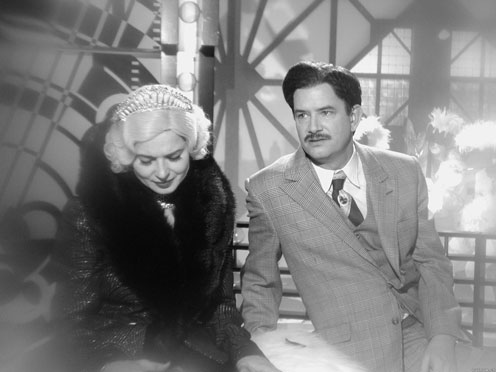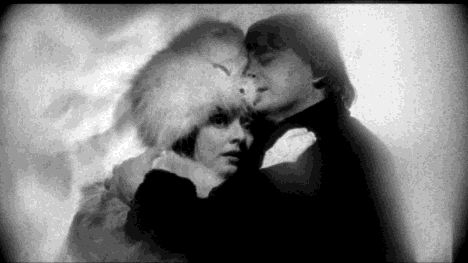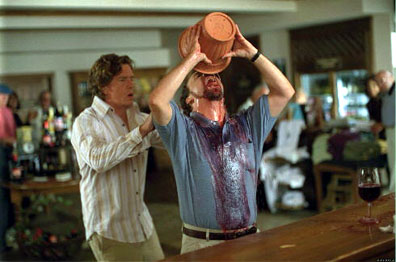This appeared in the May 14, 2004 issue of the Chicago Reader, and occasioned one of the few thank-you notes I’ve received from a filmmaker for a review. I hope both Guy Maddin and those reading this will forgive me for immodestly reproducing his email: “Dear Jonathan: I usually try to avoid setting precedents that violate what should be a no-fly zone between critics and filmmakers, but I must say that your review of Saddest Music left me feeling understood at last!!! What a feeling. Thank you for supplying this euphoria. You also win bonus points for the Laura Riding discovery — I always liked her characters’ names. George Toles, who is terrified of reading reviews, will be thrilled to see his unsung name given its proper due. Not only that, you disabled Anthony Lane’s stinkbombs. A million thanks, Jonathan!! Warmest, Guy” — J.R.

The Saddest Music in the World
**** (Masterpiece)
Directed by Guy Maddin
Written by George Toles, Maddin, and Kazuo Ishiguro
With Mark McKinney, Isabella Rossellini, Maria de Medeiros,
David Fox, and Ross McMillan.

To Guy Maddin, every contemporary story that feels true is at bottom an amnesia story. — screenwriter George Toles
When all the archetypes burst out shamelessly, we plumb Homeric profundity. Read more
From the Chicago Reader (January 7, 2005). — J.R.

Ten film critics’ polls in Chicago, Boston, Los Angeles, New York, San Francisco, Toronto, and Washington, D.C., have named Sideways the best movie of the year. I don’t know whether to laugh or cry.
It’s not that I have anything against comedies; last year Down With Love was second on my ten-best list. Besides, Sideways has a dark side — its infantile hero (Paul Giamatti) steals from his mother, and his infantile sidekick (Thomas Haden Church), who’s about to be married, compulsively cheats on his fiancee. They behave as if the world beyond southern California doesn’t exist, but the movie doesn’t seem to realize it. And like most American mainstream movies, it dances around class issues without ever facing them.
If my colleagues who love this movie, many of whom I admire, are implying that it contains valuable life lessons, I wish they’d tell me what they are. Giamatti is an acerbic loser hero who’s eventually given a ray of hope, like the Woody Allen hero of 20 or 30 years ago but without the wisecracks. So is regressing to that moviemaking model the proudest achievement of world cinema in 2004? Did the critics find something comforting, even affirmative, about its provincialism? Read more
From the Chicago Reader (January 16, 2004). — J.R.

Treated as a debacle upon release, partially as payback for producer-star Warren Beatty’s high-handed treatment of the press, this Elaine May comedy was the most underappreciated commercial movie of 1987. It may not be quite as good as May’s previous features, but it’s still a very funny work by one of this country’s greatest comic talents. Beatty and Dustin Hoffman, both cast against type, play inept songwriters who score a club date in North Africa and accidentally get caught up in various international intrigues. Misleadingly pegged as an imitation Road to Morocco, the film is better read as a light comic variation on May’s masterpiece Mikey and Nicky as well as a send-up of American idiocy in the Third World. Among the highlights: Charles Grodin’s impersonation of a CIA operative, a blind camel, Isabelle Adjani, Jack Weston, Vittorio Storaro’s cinematography, and a delightful series of deliberately awful songs, most of them by Paul Williams. 107 min. A 35-millimeter print will be shown. Univ. of Chicago Doc Films.
 Read more
Read more





